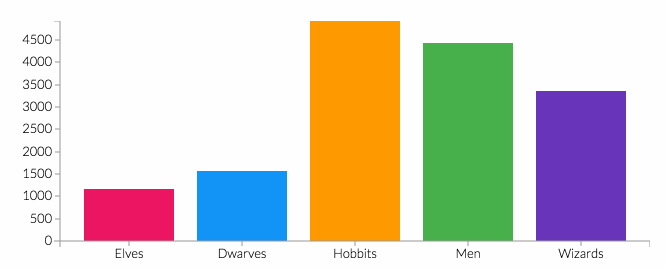Decolonization at Contemporary Culture ( Study of Social Sciences and Humanities)
DOI:
https://doi.org/10.61231/mjeec.v1i1.56Keywords:
Colonization, Decolonization, Neo colonization of contemporary cultureAbstract
Decolonization is an opportunity for countries that have been colonized as well as the state of Indonesia. Colonization, which has been going on in Indonesia for hundreds of years, has bequeathed and transformed ethical values and norms to colonized communities. Colonialism gave birth to nationalism that inspired colonized communities to commit acts of decolonization in an attempt to move on from the various cultures left behind by the colonial. Decolonization was widely done towards the beginning of independence and post-independence of Indonesia. But decolonization after more than 77 years since Indonesia became independent, the spirit slowly disappeared. Global culture has taken over the spirit of decolonization and replaced it with neocolonial culture in the contemporary culture
References
Andi Luhur Prianto dan Abdillah,(2020), Dekolonisasi Dan Indegenisasi Ilmu Pemerintahan,Volume 1 Nomor 2 Desember 2020 ISSN: 2722-1792 E-ISSN: 2723-4169 (https://jurnal.apmd.ac.id/index.php/governabilitas/article/download/86/45)
Berdikarionline Soewardi Soerjaningrat ( 2011) Kalau Saya Seorang Belanda (Als Ik Eens Nederlander Was). www.berdikarionline.com/kalau-saya-seorang-belanda-als-ik-eens-nederlander-was/. diakses 9 Maret 2022
Hasan Basri Marwah (2022) “Pribumisasi Islam dan Dekolonisasi Sejarah Umat Islam di Jawa Abad ke XIII-XVI” Jurnal Pesantren dan Kebudayaan Islam Nusantara, Edisi 1 vol. 1 2022, ( musala@jurnalannur.ac.id )
Kartasasmita, Ginanjar.(1950), “30 Tahun Indonesia merdeka 1950-1964” Bumi Restu Jakarta.
Keetie Sluyterman, (2020), “Decolonisation and the organisation of the international workforce: Dutch multinationals in Indonesia, 1945–1967”, Department of History and Art History, Utrecht University, (https://doi.org/10.1080/00076791.2017.1350170)
Lindblad, J Thomas, (2011),” The Economic Decolonisation of Indonesia: a Bird’s-eye View”, Journal of Indonesian Social Sciences and Humanities. Vol. 4, 2011, p.2, Leiden University, (http://www.kitlv-journals.nl/index.php/jissh/index URN:NBN:NL:UI:10-1-101741)
Yuda Prinada,(2021), “Sejarah Indonesia, Apa itu Pengertian VOC”. (https://tirto.id/apa-itu-pengertian-voc-sejarah-kapan-didirikan-dan-tujuannya-gaaG)
Priyamvada, Gopal (2021) “On Decolonisation and the University,” Textual Practice, 35:6, 873-899, DOI:10.1080/0950236X.2021.1929561(https://doi.org/10.1080/0950236X.2021.1929561)
Raditya, Iswara N (2017), The Massacre of the Bandanese. ( https://historibersama.com/the-massacre-of-the-bandanese-tirto/ )
Rosalind Hewett,(2015),Children Of Decolonisation, Postcolonial Indo (Eurasian) communities in Indonesia and the Netherlands, Pages 191-206. ( https://doi.org/10.1080/13639811.2014.1001598)
Stef Scagliola,(2007), “The Silences and Myths of a ‘Dirty War’: Coming to Terms with the Dutch–Indonesian,Decolonisation War (1945–1949”, ( https://doi.org/10.1080/13507480701433901 )
Setyawan Doni.(2017), “Sistem Pemerintahan Pada Masa Kolonial Belanda”.(https://www.donisetyawan.com/sistem-pemerintahan-pada-masa-kolonial-belanda/).
Najla Maitsa, (2021) .”Latar Belakang dan dampak agresi militer Belanda”.( https://www.daftarpustaka.org/agresi-militer-belanda/ )
O.g.roeder, ( 1976) “Anak desa ,biografi presiden soeharto”. Diterjemahkan oleh A. Bar. Salim&A. Hadi Noor dari “ The smiling general,President Soeharto of Indonesia”. Gunung Agung Jakarta MCMLXXVI. hlm. 235
Raditya Iswara N.(2017), “Andai Ki Hadjar Seorang Belanda”. (https://tirto.id/andai-ki-hadjar-seorang-belanda-sejarah-radikal-begawan-pendidikan-cnsd ). 26 April 2019 diakses tanggal 6 maret 2022
Tommaso Rossott. (2019) “Indonesian Political Economy : A Historical Analysis”. ( https://cesran.org/indonesian-political-economy-a-historical-analysis) .html.17 APRIL 2019. Diakses 202
Mark T. Berger,(2002) “Journal of Southeast Asian Studies, Decolonisation, Modernisation and Nation-Building: Political Development Theory and the Appeal of Communism in Southeast Asia, 1945–1975” © 2003 (The National University of Singapore DOI: S0022463403000419)
Miftachul Ulum. (2013). Mahir Analisa Data SPSS Statistical Product, Service Solution. Yogyakarta: Ghaneswara.
Miftachul Ulum. (2018). Eksistensi Pendidikan Pesantren: Kritik Terhadap Kapitalisasi Pendidikan. TA’LIM?: Jurnal Studi Pendidikan Islam, 1(2), 20–37.
Miftachul Ulum. (2020). Basic Statistic With Statistical Package for Social Sciences (SPSS) (1 ed.). Lamongan: CV. Pustaka Ilalang.
Mudzakkir Amin, (2012),”Dekolonisasi Sejarah Indonesia dalam Perspektif Poskolonial Belanda”, https://www.academia.edu/18142823/
Widya, Ningsih Lestari (2022). “Kolonialisme-pengertian-tujuan-dan-perkembangannya”. https://www.kompas.com/stori/read/2021/08/26/130000979/
Downloads
Published
Issue
Section
License
Copyright (c) 2023 Nur Khamid

This work is licensed under a Creative Commons Attribution 4.0 International License.
You are free to:
- Share — copy and redistribute the material in any medium or format for any purpose, even commercially.
- Adapt — remix, transform, and build upon the material for any purpose, even commercially.
- The licensor cannot revoke these freedoms as long as you follow the license terms.
Under the following terms:
- Attribution — You must give appropriate credit , provide a link to the license, and indicate if changes were made . You may do so in any reasonable manner, but not in any way that suggests the licensor endorses you or your use.
- No additional restrictions — You may not apply legal terms or technological measures that legally restrict others from doing anything the license permits.
Notices:
You do not have to comply with the license for elements of the material in the public domain or where your use is permitted by an applicable exception or limitation .
No warranties are given. The license may not give you all of the permissions necessary for your intended use. For example, other rights such as publicity, privacy, or moral rights may limit how you use the material.














